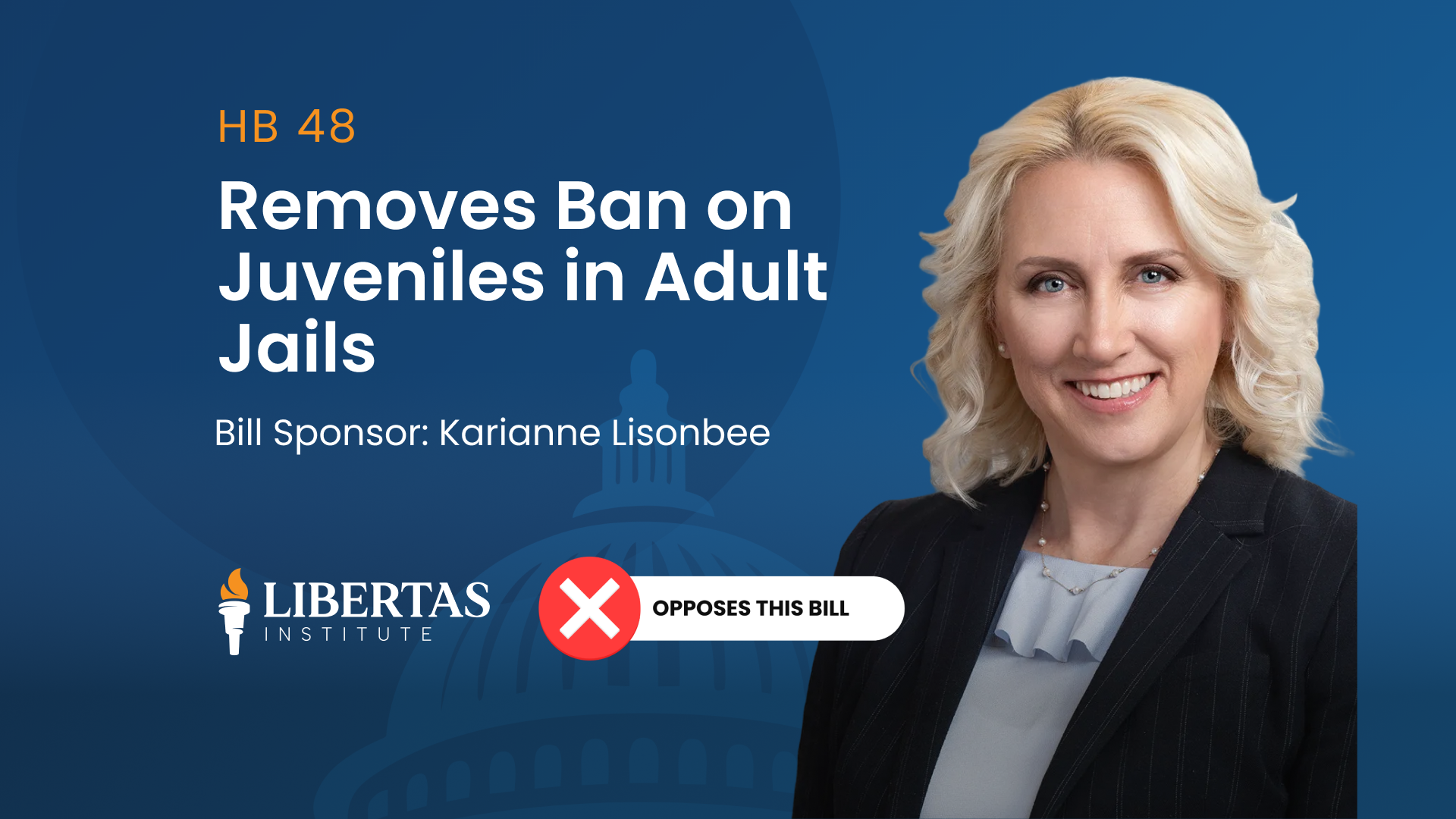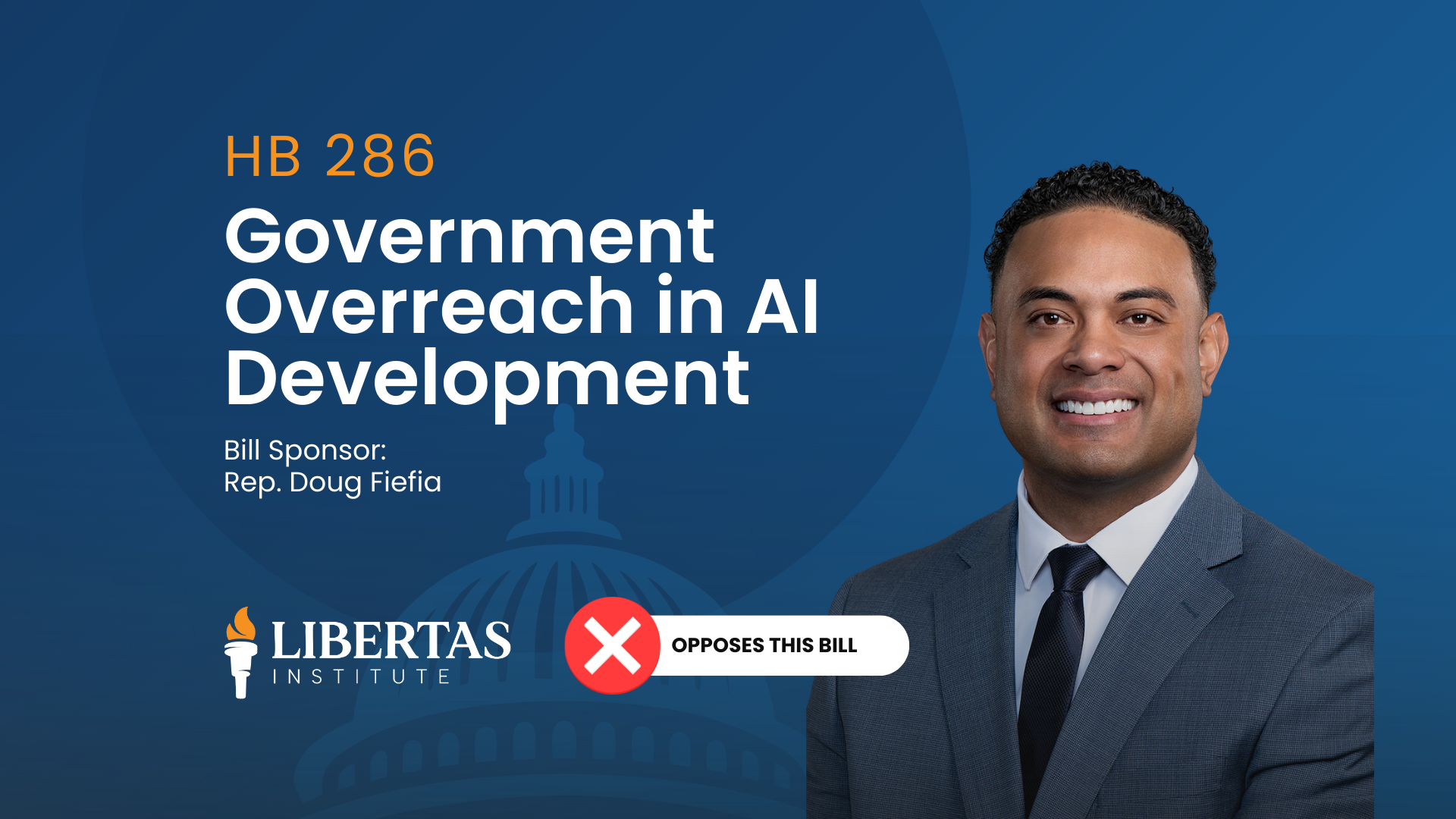This bill passed the House 71-1 and passed the Senate unanimously. It was subsequently signed into law by Governor Herbert.
Libertas Institute supports this bill.
See below for an update.
Utah law allows the Division of Child and Family Services to take a child away from his or her parents or guardians in a variety of situations, including upon an allegation of neglect or abuse. As currently written, the law contains broad and permissive authorities that provide the division with latitude to intervene, place a child into foster care, and even terminate the rights of the parent, placing the child for adoption.
As with any broad authority, this can be—and has been—abused in the past. Utahns will likely recall the story of Parker Jensen, who at the young age of 13 was diagnosed by a doctor with a cancer called ewing sacrcoma. His parents disagreed with the diagnosis and sought a separate diagnosis but the state, led by Attorney General Mark Shurtleff, repeatedly and aggressively intervened to frustrate the family’s efforts—and attempted to force young Parker to undergo the prescribed treatment. The state finally backed down in the court room, and ten years later, Parker is cancer-free, married, and is now a father—a significant fact since had he been forcibly subjected to chemotherapy by the state, he may likely have been sterilized.
Parker’s case, unfortunately, is not unique; Cassandra from Connecticut, Jestina from Massachusetts, and others have been wrongfully and forcefully subjected to medical treatment by the state based on a single diagnosis.
House Bill 356, sponsored by Representative LaVar Christensen, aims to provide parents the right to seek a second medical opinion, and pursue that opinion, before the state would have authority to intervene and force treatment. Further, whenever a child is in custody of the state—because parental rights have not been terminated at that point—the parent retains the right to oversee the medical care of their child. As such, the bill also requires the state to obtain the parent’s written consent prior to administering any non-emergency treatment to a child in their custody.
The bill also narrowly constrains some of the conditions upon which a child can be taken. For example, whereas current law allows a child to be taken from his or her parents due to “emotional damage,” the bill would require the state to show “substantial emotional damage that results in an observable and material impairment in the child’s growth, development, or psychological functioning.”
Further, if the state wants to take a child due to this emotional damage, or because of living conditions that pose a threat, or neglect, the state can only take the child if “the parent or guardian is unwilling or unable to make reasonable changes that would remove the threat.”
Other changes are offered in the bill to tighten up this authority, including elevating the legal standard for retaining custody of the child from a preponderance of evidence to clear and convincing evidence.
This is important legislation provided with input of Libertas Institute to protect the rights of innocent parents. Clearly, children who are in abusive or neglectful circumstances should be protected—and on this point we emphatically agree. However, authority given to state employees who work in this arena must be appropriately constrained so as to protect the rights of the innocent parent falsely accused. We believe this bill reasonably works towards this crucial goal.
Update: Following discussions with the Division of Child and Family Services, the Attorney General’s office, and the Guardian ad Litem office, the bill has been modified in several key areas. The right to seek a second medical opinion has been narrowed with limited language and parents may not exercise this right in cases where the child is at risk of imminent death or health complications. Parents of children in custody of the state are entitled to be notified of, and involved in, non-emergency medical decisions regarding the child, and shall be notified within five business days regarding any emergency medical care performed on the child. For these and other minor updates, see the latest version of the bill here.




